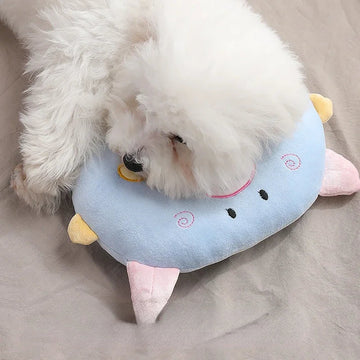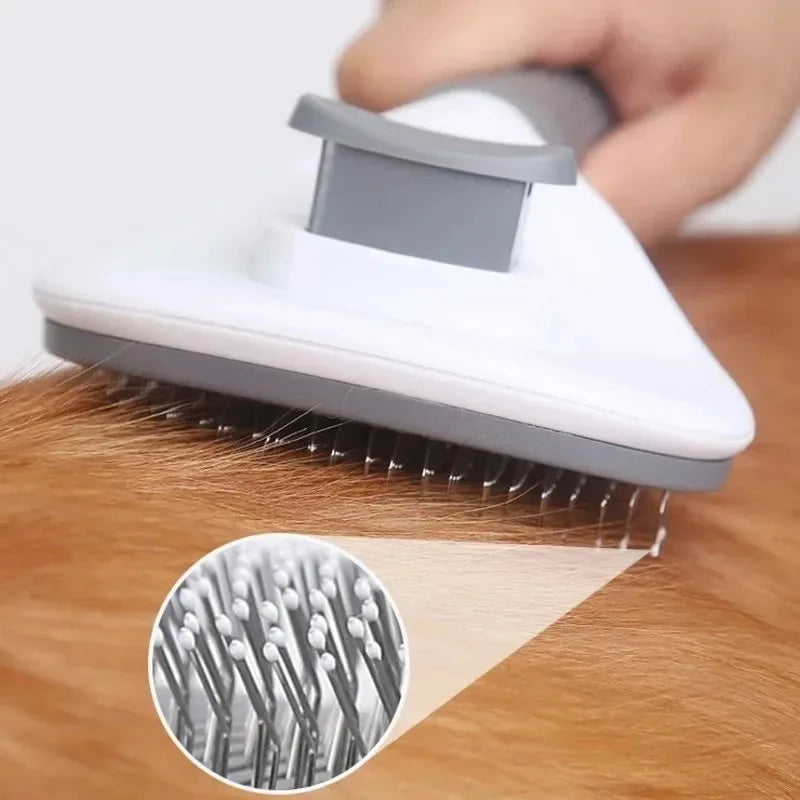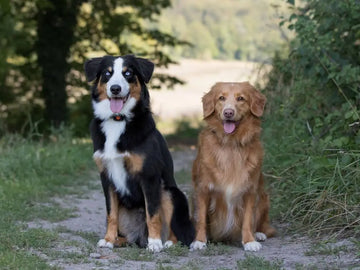Puppies are undoubtedly one of the most delightful additions to a family, with their playful antics and cuddly nature bringing joy to all. Among the many fascinating behaviors that emerge as puppies grow is their ability to start cleaning themselves. Watching your little one mimic adult dogs in self-grooming can be heartwarming and shows they’re developing independence. This brings up a common question for new pet owners: when do puppies start cleaning themselves? Additionally, what essential supplies can help support a puppy's hygiene routine? This article provides insights into puppy self-grooming behavior, covering topics like the role of dog cleaning supplies, dog potty training, and other dog supplies for maintaining your puppy’s hygiene.
The Natural Instinct for Cleanliness: Early Weeks of a Puppy’s Life
Puppies are born entirely reliant on their mothers. In the initial weeks, they cannot see, hear, or move around effectively, and they rely on their mother not only for warmth and nutrition but also for cleanliness. Newborn puppies do not have the physical capability to groom themselves. Instead, their mother instinctively cleans them after each nursing session, a behavior that helps stimulate their bowels and keep the environment sanitary.
As puppies grow and become more mobile, they begin to learn from their mother’s example. Watching her clean herself and the other puppies helps them understand the basics of grooming. However, even as they attempt to mimic this behavior, they will need some time before they can fully manage their own hygiene.
When Do Puppies Start Cleaning Themselves?
Typically, puppies start experimenting with self-grooming behaviors at around 3 to 4 weeks of age. During this period, they may be seen licking their paws, face, and even nibbling at their fur. While this isn’t full-scale grooming, it marks the beginning of their journey towards self-care. As they practice, puppies gradually gain better control over their limbs and movements, allowing them to groom more effectively.
By the time they reach 6 to 8 weeks, most puppies will be actively engaging in grooming behaviors, including licking and scratching themselves. This is a crucial time for pet owners to introduce certain dog cleaning supplies like gentle puppy-safe wipes, which can help clean areas that puppies may miss. Using the right dog cleaning supplies not only supports their natural grooming habits but also keeps them healthy, especially during the early months when they are still learning.
The Impact of Weaning on Grooming Habits
The weaning process, which typically starts between 4 to 6 weeks of age, signals a significant shift in a puppy’s development. As puppies transition from their mother’s milk to solid food, they also begin to explore more of their environment. They may get their fur dirty while playing and exploring, leading to an increased need for self-grooming.
During this time, puppies also begin to experiment with other self-care behaviors, like using a dog potty. Introducing a dog potty can be helpful in establishing good hygiene habits early on. By associating a specific spot with toileting, puppies not only keep their living area cleaner but also have fewer accidents that may require extra cleaning.
Incorporating dog potty solutions, such as training pads, can also make it easier for pet owners to manage their puppy’s cleanliness. This stage is a learning period where puppies figure out how to keep themselves and their surroundings clean, setting the foundation for lifelong habits.
The Role of Essential Dog Supplies in Puppy Grooming
During the first few months of life, puppies will need some assistance in maintaining their cleanliness. While they start grooming themselves around 4 weeks, their skills are limited, and their fur can easily become matted or soiled. As a pet owner, having the right dog supplies on hand can make a world of difference in keeping your puppy clean and comfortable.
Dog cleaning supplies like mild puppy shampoo, brushes, and grooming wipes are essential. Regular brushing prevents fur from becoming tangled and helps puppies stay comfortable as they grow. Using puppy-safe cleaning wipes is an excellent way to clean their paws, face, and underbelly, especially after outdoor play or potty training sessions.
If you’re setting up a grooming station, some useful dog supplies include:
- Puppy Shampoo: Specially formulated shampoos for puppies are gentle on their skin and coat.
- Grooming Wipes: These are convenient for quick clean-ups, especially for young puppies who are still learning to clean themselves.
- Brushes and Combs: Choose a brush suited to your puppy’s fur type to prevent matting and promote healthy fur.
- Dog Potty Pads: Helpful for training and maintaining cleanliness, especially for indoor training.
- Dog-Safe Towels: Soft, absorbent towels are essential for drying your puppy after a bath or cleaning session.
Why Grooming Matters for Puppies
Self-grooming is a vital aspect of a puppy’s development. Not only does it help them keep clean, but it also fosters a sense of independence and self-reliance. Grooming allows puppies to become familiar with their own bodies, promoting comfort and self-awareness. Additionally, regular cleaning—whether self-initiated or assisted by the owner—helps prevent issues like skin infections, matting, and unpleasant odors.
Puppies that start grooming themselves early also tend to adapt better to hygiene routines like brushing, nail trimming, and bathing, making them more manageable as they grow into adults.
Teaching and Supporting Grooming Routines
Although puppies begin cleaning themselves naturally, it’s essential for owners to reinforce this behavior. Providing gentle support during the early months will encourage them to maintain these habits as they grow. Here are a few ways you can assist your puppy in learning good grooming habits:
- Positive Reinforcement: Reward your puppy with treats or praise when they engage in self-grooming or use the dog potty. Positive reinforcement encourages them to repeat these behaviors.
- Introduce Grooming Early: Start using dog cleaning supplies, like a soft brush, early in their life so they become comfortable with the grooming process.
- Maintain a Routine: Regular grooming and potty training sessions help your puppy understand what’s expected of them, reducing anxiety and building consistency.
Establishing a routine is crucial for teaching young puppies the value of self-care. Combining positive reinforcement with the right dog supplies ensures that grooming becomes a pleasant experience rather than a chore. Over time, your puppy will grow accustomed to the grooming process, making it easier for both of you to maintain their cleanliness.
Conclusion: Helping Your Puppy Become a Self-Grooming Pro
Understanding when puppies start cleaning themselves is just one part of raising a healthy, happy dog. Puppies typically begin to develop self-grooming skills around 3 to 4 weeks of age, although they are not proficient until they’re closer to 8 to 12 weeks. During these early stages, dog cleaning supplies and other essential dog supplies can make a significant difference in maintaining your puppy's hygiene.
With a combination of self-grooming and owner assistance, your puppy will grow into a clean, well-adjusted adult dog. Whether it’s using a dog potty, providing grooming wipes, or setting up a regular brushing routine, these small efforts lay the groundwork for lifelong hygiene habits. Investing time in supporting your puppy's grooming journey not only helps them stay healthy but also strengthens the bond you share.










